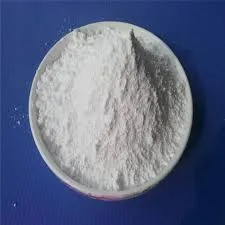Understanding Cooling Water Chemicals Importance and Applications
Cooling water systems are critical components in various industries, including power generation, manufacturing, and chemical processing. These systems are responsible for dissipating heat generated by industrial processes, ensuring optimal operational efficiency and equipment longevity. However, cooling water systems can face multiple challenges such as scaling, corrosion, and biological growth, which can severely impact their performance. To tackle these issues, specialized cooling water chemicals are employed, playing a vital role in maintaining system integrity and efficiency.
The Role of Cooling Water Chemicals
Cooling water chemicals can be categorized into several groups based on their functions, including antiscalants, corrosion inhibitors, biocides, and pH adjusters. Each group serves a specific purpose and is crucial for the smooth operation of cooling systems.
1. Antiscalants One of the primary challenges in cooling water systems is the formation of scales, which are deposits that accumulate on heat transfer surfaces. These scales can significantly reduce heat transfer efficiency, leading to increased energy consumption and operational costs. Antiscalants are chemicals designed to prevent scale formation by inhibiting the precipitation of sparingly soluble minerals, such as calcium carbonate and calcium sulfate. By maintaining the solubility of these minerals, antiscalants ensure that cooling systems operate efficiently.
2. Corrosion Inhibitors Corrosion is another major concern for cooling water systems. It can lead to equipment failure and increased maintenance costs. Corrosion inhibitors are chemicals that form a protective layer on the surfaces of metal components, shielding them from corrosive agents such as oxygen and acidic compounds. These inhibitors can be classified into several types, including anodic, cathodic, and passivation inhibitors, each working through different mechanisms to protect metal surfaces.
3. Biocides Cooling water systems are prone to biological fouling caused by microorganisms such as algae, bacteria, and fungi. These organisms can form biofilms on surfaces, reducing heat transfer efficiency and causing blockages in pipes. Biocides are chemicals that kill or inhibit the growth of these microorganisms, helping to maintain a clean and efficient cooling system. It is essential to select biocides that are effective while also being environmentally safe to minimize the impact on surrounding ecosystems.
4. pH Adjusters Maintaining the correct pH level in cooling water systems is crucial for optimizing the performance of other treatment chemicals. pH adjusters, such as acids or bases, are employed to regulate the acidity or alkalinity of the water. A balanced pH ensures the effective performance of corrosion inhibitors and antiscalants, preventing unwanted chemical reactions that could harm the system.
cooling water chemical

The Benefits of Proper Chemical Treatment
Implementing a comprehensive cooling water treatment program that incorporates these chemicals can provide various benefits
- Enhanced Operational Efficiency By preventing scale and corrosion, cooling water chemicals help maintain optimal heat transfer and reduce energy consumption. This not only lowers operational costs but also extends the lifespan of equipment.
- Reduced Downtime Proper chemical treatment minimizes the risk of system failures due to scaling or corrosion, leading to less unplanned downtime for repairs and maintenance.
- Environmental Compliance With increasing regulations on industrial discharges, using environmentally-friendly cooling water chemicals can help companies comply with legal requirements and demonstrate a commitment to sustainability.
- Cost Savings The long-term savings associated with reduced energy consumption, lower maintenance costs, and extended equipment life can significantly outweigh the initial investment in cooling water treatment chemicals.
Conclusion
Cooling water chemicals are essential for the efficient and safe operation of cooling water systems across various industries. By understanding the roles of antiscalants, corrosion inhibitors, biocides, and pH adjusters, companies can implement effective treatment strategies that enhance performance, reduce operational costs, and ensure compliance with environmental regulations. As industries continue to prioritize sustainability and efficiency, the importance of effective cooling water chemical treatments will only grow.

